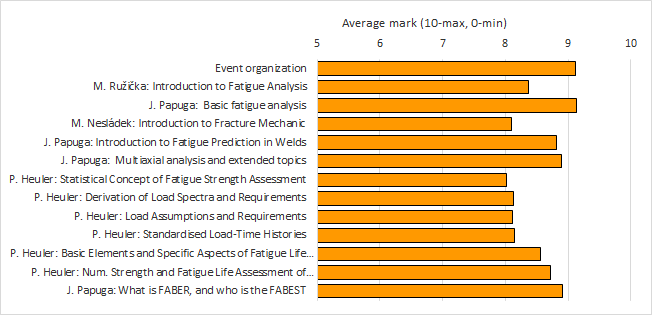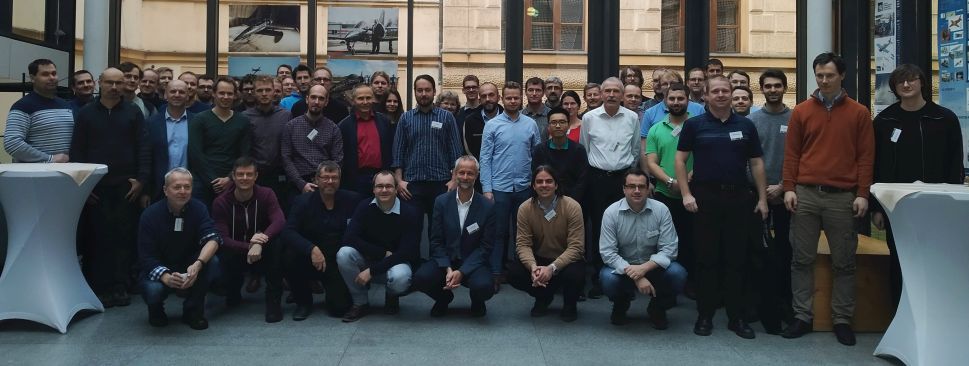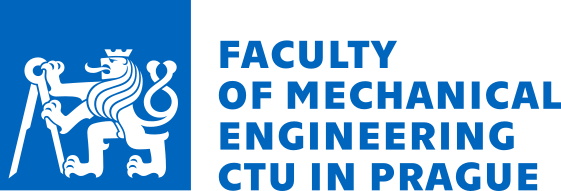User: unknown || Login || NEWS: One pdf corrected, Evaluation, Last update of pdfs, pdfs updated, Fatigue 2020
WCFA'19-PHL
Evaluation of the Workshop
In order to get some feedback from the participants about the meeting and the lectures, we asked them to fill our questionnaires anonymously. They could select values in between the 1 (awful) to 10 (magnificient). The number of participants coming for the first day (48) was substantially lower than the number attending the other two days (60 at the peak) lectured solely by Paul Heuler. The overall statistic evaluations is provided here:

The more detailed evaluation in individual evaluated sections can be analyzed here below. Note that the fonts in italics are comments of me (Jan Papuga) as the manager of the conference.
| Values stated: Average mark/Number of evaluations | ||||||
|---|---|---|---|---|---|---|
| Day | Lecturer: Lecture | Slides | Show | Comprehensibility | Gained knowledge | Importance of the topic |
| 1 | M. Růžička: History, Basics, Load History | 8.9/35 | 7.8/35 | 8.5/33 | 7.8/33 | 9.0/34 |
| Comments: | that English... | |||||
| J. Papuga: Basic Fatigue Analysis | 9.3/35 | 9.2/35 | 9.3/33 | 8.5/33 | 9.4/34 | |
| Comments: | Comprehensive, well presented, the example | |||||
| M. Nesládek: Intro to Fracture Mechanics | 8.7/35 | 8.1/35 | 8.3/33 | 7.4/33 | 8.0/34 | |
| Comments: | too quick for me | |||||
| J. Papuga: Intro to Fatigue in Welds | 9.0/35 | 9.0/35 | 9.1/33 | 8.0/33 | 9.0/34 | |
| Comments: | ||||||
| J. Papuga: Multiaxial Fatigue and Extended Topics | 9.2/35 | 9.0/35 | 8.9/33 | 8.2/33 | 9.1/34 | |
| Comments: | too much information | |||||
| 2 | P. Heuler: Statistical Concept of Fatigue Strength Assessment | 8.7/46 | 8.4/46 | 8.0/46 | 6.9/46 | 8.1/45 |
| Comments: | I did not get too much of this, I feel it is important but the explanation was not detailed enough; sometimes too quick; too much information, small consistinty (?), very quick!; I knew already most issues (my research); too much text in the slides | |||||
| P. Heuler: Derivation of Load Spectra and Requirements | 8.7/46 | 8.4/46 | 8.2/46 | 7.2/46 | 8.1/45 | |
| Comments: | these topics were covered I would say from distance, I lack more detailed procedure provided; too much information, small consistinty (?), very quick!; I knew already most issues (my research); too theoretical for me; difficult to understand | |||||
| P. Heuler: Load Assumptions and Requirements | 8.7/46 | 8.5/46 | 8.2/46 | 7.2/46 | 8.1/45 | |
| Comments: | these topics were covered I would say from distance, I lack more detailed procedure provided; too much information, small consistinty (?), very quick!; I knew already most issues (my research); nice videos and assumptions | |||||
| 3 | P. Heuler: Standardised Load-Time Histories | 8.8/46 | 8.5/46 | 8.3/46 | 7.1/46 | 8.0/45 |
| Comments: | these topics were covered I would say from distance, I lack more detailed procedure provided; some slides need to add more text to be understandable in future (or take a lot of notes); too much information, small consistinty (?), very quick!; I knew already most issues (my research); | |||||
| P. Heuler: Basic Elements and Specific Aspects of Fatigue Life Prediction Concepts | 8.9/45 | 8.7/45 | 8.5/46 | 7.8/45 | 8.8/44 | |
| Comments: | I knew already most issues (my research) | |||||
| P. Heuler: Num. Strength and Fatigue Life Assessment of Automotive Structures | 9.1/46 | 8.8/46 | 8.7/46 | 8.1/45 | 8.8/44 | |
| Comments: | I knew already most issues (my research); the only really interesting lecture | |||||
| J. Papuga: What is FABER, and who is the FABEST | 9.3/28 | 9.3/28 | 9.3/28 | 8.2/28 | 8.6/29 | |
| Comments: | (10^2 as regards the importance); will be separately discussed (?) | |||||
| Comments overall: | To answer your last question: Are Experience (PHL) better than teaching?, I would prefer teaching Make it in middle November at latest if possible :) add more real examples PHL: Very good overview of possible methods and problems, but often too detailed when I consider that transferability into daily working routine is almost impossible based on shown information Paul Heuler was announced as an expert on fatigue from Audi. My assumption of practical approaches, automotive… was not met in reality. Some lectures resulted in exclamation marks in my head, what can have effect, and what to beware, but mostly I have no idea, how to apply the knowledge. Many graphs without legend, units, scales. I have no idea in which domain the effect resides, what is dangerous for my cases (inspirational), at given frequencies, stress, cycles, temperatures… We know about certain effects, but I have no idea, where to find them in graphs (missing scales) It could be seen he attempts to say a lot, but nothing to disclose. Well understandable English. Part of the items evaluated ".. built on own experience..." - but there was no opinion from own experience. Mr Heuler's presentations were rather hard to comprehend or to keep focused. There is not doubt about his great knowledge, but it is hard to "injest" such amoutn of information. From my point of view, I probably expected something more let's say "practical" | |||||
| Would you be interested in Vibration Fatigue Analysis workshop in 2020? | Yes - 29 times Yes, if not by Neil Bishop (I heard that presenting is not his cup of tea) - 1 time Maybe - 4 times No - 1 time The number of people who are attracted by vibration fatigue is really huge, if taking into account that some 50 people filled in the evaluation sheets. It is worth evaluating if there is some space open to organize such event in the next year. Presumably, June would fit better this time. I'll start to check the options during January. | |||||
| Next recommended topics: |
FEM and fatigue (4 times) Vibration fatigue analysis (3 times), including the testing Thermomechanical fatigue (3 times) FKM (3 times) Detailed LCF (2 times), non-linear FKM Guideline Fracture mechanics analysis Fatigue of polymer materials Fatigue of parts made by additive manufacturing Fatigue of thin-walled welded structures Multiaxial fatigue in detail (basically a postgraduate course in "advance fatigue" within 3 days Fatigue in railway industry (railway related) Idea of numerical calculation aspects in face of EC3, IIW, DVS, FKM Fatigue analysis of connections (rivets, bolts) To show a quick fatigue calculation exampled (what was presented) but step-by-step, e.g. FKM Fatigue of rubber parts New materials, methods Material data derivation methods based on test results Fitting the best fatigue method for given, tested case Fatigue of non-standard non-metal materials (composites, copper, AM) Something from biomechanics Fatigue that can occur in airplanes Predictive maintenance topics Fatigue analysis II, maybe with practical training Well, my comments: Huge number of problems was touched by you at least once. The more emphasized topics concern the FE-model quality for fatigue analyses (difficult topic for finding the right lecturer) , thermo-mechanical fatigue (the same issue), vibration fatigue (it seems that the next VFA volume got much closer in my plans, than I originally anticipated), and LCF (the FKM-Guideline there would fit the best, and I will inquire the chances by Michael Vormwald) | |||||
The meeting itself was rated separately, and the results are provided here:
| Values stated: Average mark/Number of evaluations | ||
|---|---|---|
| Information before meeting | Mark: | 9.2/49 |
| Comments: | Simple, comprehensive, I found all necessary For unknown reason, I feel this year everything was organized "last minute" (Frankly, it was tough this year, since I spend this autumn in Bournemouth, UK). But I hope only you noticed that.) Slight "oldschool" web functional, but hard to navigate. (It seems I myself am getting "oldschool", because I often have problems in finding the necessary information in those more modern looking webs. As I am the programmer of pragtic.com web, I have theoretically vast privilege to modify the web, but I lack the time for that.) Good information in advance, including presentations All good Hotel recommendation would be great (In the moment, where there are so numerous options on booking.com and Airbnb, I do not want to recommend you any particular location.) | |
| Realization on-site, location | Mark: | 9.5/49 |
| Comments: | Well accessible by public transport I don't like Prague! (It is good to relieve your frustration at least this way. First 5 volumes of WCFA were in various odd places outside of Prague, but such places are much more complicated as regards the international audience.) It is in Prague :) Good organization, good location Extremely nice room and atmosphere | |
| Room, equipment | Mark: | 7.9/48 |
| Comments: | Summary by one of participants: Acceptable - air worsened during time (missing A/C, and bad air mentioned by 7 votes), sun in eyes in the morning, bad visibility afternoon,
no idea how to sit there (bad chairs mentioned 5 times), neck aching in front rows, noise from the street (2 times) - but there is no other way (Well, there are other options, but only during the exam periods or during holiday. The critics is anyhow very similar over all those years, so I will look for other potentially acceptable places. | |
| Meals | Mark: | 9.2/49 |
| Comments: | Perfect catering Lunch was (Tuesday) quite small, coffee terrible (It is true this was not my cup of coffee) One vote 20, another 15 instead of the maximum 10 recommended I'd prefer something warm to eat during breaks (boiled fruit or vegetables) (over those years of attending various conferences, I do not recall any warm vegetable or fruit being served during a coffee break - we'd be the first ones!) Good, neat personal A little bit more during lunches and coffee breaks All superb There is always space for improvement (Sure!) Too much of food, but it was really good | |
| Social evening | Mark: | 9.7/31 |
| Comments: | Briscola Challenge written 20 I wasn't there (Your mistake) Perfect! Excellent! Awesome idea how to mix people and get them from their tables Place was nice and the idea with playing roulette and black jack was great I would rather play poker instead of black jack All in all, people enjoyed that and we reached for the second time the highest average score attained anytime before. It anyhow seems that it is enough to bring several packages of cards next time, and let you play. | |
Photo from the second day
Click on the photo to get to the snapshot with a better resolution.
papuga@pragtic.com, last update: December 12, 2019
EXTERN LINKS:


















